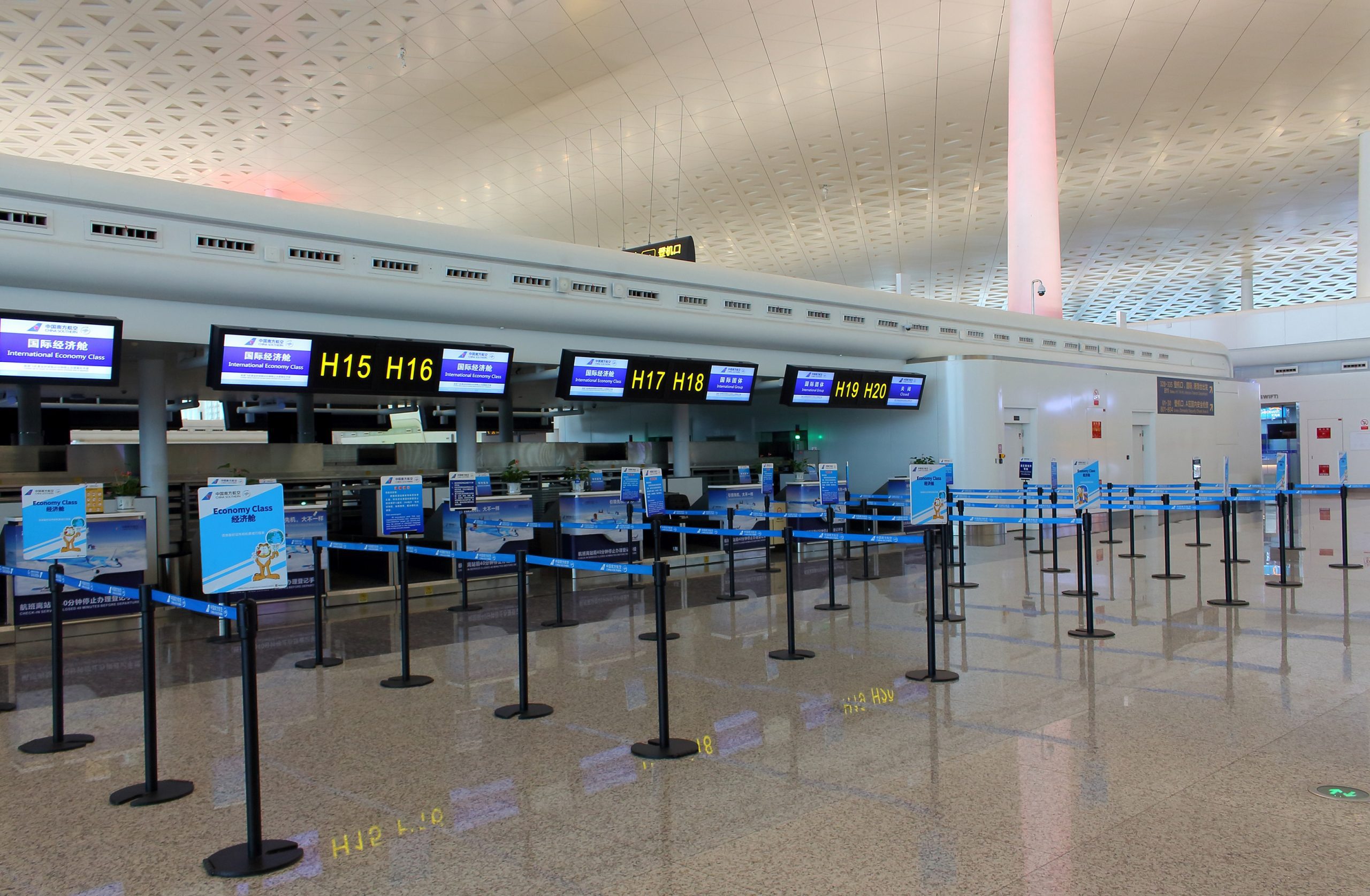The coronavirus is keeping an as yet unknown number of TU Delft students and staff in China. Delta spoke to two of them. “I don’t know when I can fly back.”
For the time being there are no flights departing from Wuhan Tianhe International Airport. (Photo: Vera Tikhonova)
With over 350 deaths and more than 14,500 infected in and around the multi-million city of Wuhan in China, the coronavirus is gripping the world. The Netherlands has now evacuated 15 Dutch citizens and two Chinese partners from China. To date, none of the travellers has fallen ill, but they must remain in quarantine for two weeks.
Flights cancelled
Less fortunate are TU Delft master student Liyao Zhang (geomatics) and post doc Dongliang Peng (geoinformation technology & governance). They are two of the as yet unknown number of students and staff that are in China’s risk regions. Zhang has been with family in Chengdu, the capital of the province of Sichuan, since 18 January and is supposed to fly back to the Netherlands on 10 February. But KLM and other large airline companies have cancelled their flights till the end of February so there is little chance that Zhang really will fly back on the 10th. She is not that worried at the moment. “I am working hard on my thesis so the only really annoying thing is that I can’t have one-to-one meetings with my supervisors. Luckily our email contact works well.”
Post doc Peng is in Changsha, a city about 300 kilometres from Wuhan, at the moment. He too is not faced with major problems. “I don’t know if my flight on 15 February will leave. Up to then, I will continue working here on my research. The only thing is that the work situation here is not as good as at the office. My laptop is not as powerful as the desktop at TU Delft.”
‘Government officials go door to door to take our temperature’
Neither Zhang nor Peng are afraid of contracting the coronavirus. “I bought some masks, but am not worried,” says Peng. Zhang too seems calm. “People in Chengdu are taking measures to avoid infection. The holidays have been extended, people are wearing masks, government officials are going door to door to take the temperature of people and to ask about any travel plans.”
Nevertheless, when she returns to TU Delft, Zhang intends to spend two weeks in quarantine. “The incubation time of the coronavirus is about 10 to 14 days. Staying indoors for two weeks should work. My housemates can help and I can order food online.”
Unclear
On behalf of TU Delft, that has the highest number of Chinese students in the Netherlands, a spokesperson announced that the number of students and staff currently in risk areas is not known. “We are looking into this at the moment. Students and staff do not always inform TU Delft when they travel abroad.”
In answer to the question on how many new Chinese students are expected by TU Delft for the next semester, the spokesperson could not answer. The new semester starts next week. “We refer new students to our document that contains answers to frequently asked questions. We are also taking extra preventive measures throughout the campus this week and everything will be cleaned more frequently.”
Worried
On campus, master student of electrical engineering Xiaoyao Luo is going through a tumultuous time. His parents live in a small city close to Wuhan and recently travelled to visit his grandparents in Wuhan. “To be honest, they were not that concerned about the virus at first. News about the virus was initially shared through the Weibo app (a similar app to Twitter). But my parents don’t use Weibo. It was only when the government announced that Wuhan would be on lock down that they realised how serious the situation was.”
Luo, who is in the middle of exams, is worried and can barely concentrate. “The only thing I could do was to continually refresh my newsfeed. I wanted to know everything there was to know about the virus. This was probably not the best thing to do as most of the news was negative and I only became even more worried.” Up to now, none of Luo’s family members or friends in and around Wuhan have been infected. “I feel better now that I know the holidays in Hubei province will not be resumed until after midnight on 13 February. Up to then, my parents’ will also be off work and the Government is doing everything it can to prevent the further spread of infection.”
Code red
Given the stringent measures that China has taken to avoid the further spread of the virus, the Dutch Ministry of Foreign Affairs issued code red for travel to Wuhan and the province of Hubei. It has issued code orange for the rest of China, which means that it only advises travel there ‘if it is absolutely necessary’.
In the meantime, three universities of applied sciences have instituted travel restrictions: the Rotterdam University of Applied Science, and the Arnhem and Nijmegen Universities of Applied Sciences. They are no longer giving permission for study trips to and internships in China. TU Delft is advising students and staff not to travel to China, but it is not restricting travel. TU Delft advises regularly checking the official updated travel advisory (in Dutch).
- Frequently asked questions, including information about prevention and current travel advice, is available on intranet and TU News.
Do you have a question or comment about this article?
m.vanderveldt@tudelft.nl


Comments are closed.